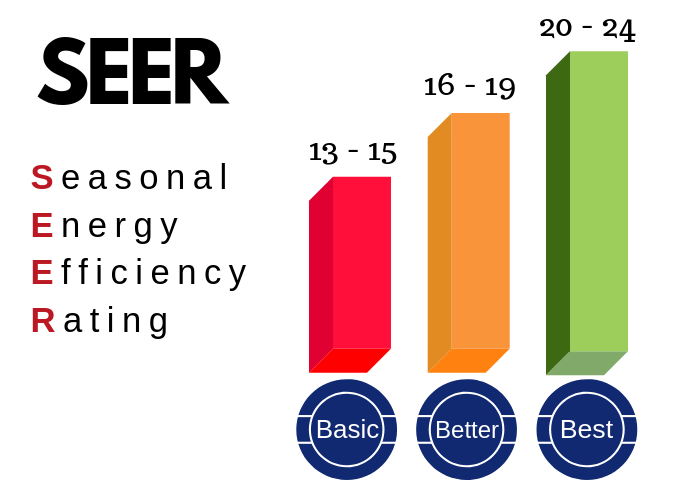Energy-Efficient HVAC Upgrades: What to Know Before You Invest
- Jean Swafford
- Nov 20, 2024
- 4 min read
Introduction
Rising energy costs and growing concerns about environmental sustainability have led many homeowners to seek energy-efficient HVAC upgrades. While upgrading your HVAC system can involve significant upfront costs, the long-term savings on utility bills, improved indoor comfort, and reduced carbon footprint often make it a worthwhile investment. But what should you consider before making these upgrades? This guide will walk you through the key factors to evaluate, the benefits of energy-efficient upgrades, and the best options for your home.

1. Benefits of Energy-Efficient HVAC Upgrades
Lower Energy Bills
Energy-efficient HVAC systems use less energy to heat or cool your home, which translates to lower monthly utility bills. Over time, the savings can offset the initial investment in new equipment.
Improved Comfort
Upgrading to energy-efficient models often leads to better temperature regulation and consistent airflow throughout your home. This means fewer hot or cold spots and more reliable performance year-round.
Reduced Environmental Impact
By using less energy, energy-efficient HVAC systems reduce greenhouse gas emissions and your carbon footprint, helping to create a more sustainable future.
Potential Tax Credits and Rebates
Many states, utility companies, and the federal government offer tax credits, rebates, or other incentives for upgrading to energy-efficient systems. This can help reduce the initial cost of the upgrade.
Longer Lifespan and Reduced Repairs
High-efficiency HVAC systems are often built with advanced technology and components that enhance durability, reduce wear and tear, and minimize the need for repairs.
2. Considerations Before Investing in HVAC Upgrades
Assess Your Current System
Before deciding to upgrade, evaluate the performance of your existing HVAC system. Consider:
Age of the System: If your system is more than 10-15 years old, it may be nearing the end of its lifespan and less efficient than newer models.
Frequent Repairs: If you find yourself frequently calling for repairs, it may be more cost-effective to invest in a new, energy-efficient system.
Rising Energy Bills: Increasing energy bills may indicate that your current system is working harder than it should, wasting energy in the process.
Conduct a Home Energy Audit
A home energy audit can help identify areas where your home may be losing energy, such as poorly insulated windows, doors, and walls. This audit can guide you in making targeted upgrades that maximize your HVAC system’s efficiency.
System Sizing and Load Calculation
Choosing the right size HVAC system is critical. An oversized or undersized system can lead to poor performance, inconsistent temperatures, and wasted energy. Work with a qualified HVAC professional to conduct a load calculation and determine the correct size for your home.
Evaluate Ductwork and Airflow
Poorly designed or leaking ductwork can significantly impact HVAC efficiency. Before upgrading, have your ducts inspected and sealed to ensure optimal airflow. A more efficient HVAC system won’t perform well if the ductwork isn’t in good condition.
3. Energy-Efficient HVAC Upgrade Options
High-Efficiency Air Conditioners and Heat Pumps
Consider upgrading to a high-efficiency air conditioner or heat pump with a higher SEER (Seasonal Energy Efficiency Ratio) rating. The higher the SEER rating, the more energy-efficient the unit.
Variable-Speed Systems
Variable-speed HVAC systems can adjust their speed based on your home’s needs, reducing energy consumption, improving comfort, and maintaining more consistent temperatures.
Smart Thermostats
Smart thermostats allow you to control your HVAC system remotely and optimize temperature settings based on your schedule. Many models also learn your habits and automatically adjust settings to maximize energy savings.
Zoned HVAC Systems
Zoned systems allow you to control temperatures in different areas or "zones" of your home independently. By directing airflow only where it’s needed, you can save energy and increase comfort.
Geothermal Heat Pumps
Geothermal systems use the earth’s natural temperature to heat and cool your home efficiently. While the installation cost can be higher, the energy savings and potential tax incentives can make it a smart investment.
Energy Recovery Ventilators (ERVs) and Heat Recovery Ventilators (HRVs)
ERVs and HRVs improve indoor air quality and recover heat or cooling energy from the air that leaves your home, reducing the load on your HVAC system and saving energy.
4. Cost vs. Long-Term Savings
When evaluating the cost of energy-efficient HVAC upgrades, consider the long-term savings. While the upfront cost may be higher, energy savings over the life of the system can lead to significant financial benefits. Additionally, some upgrades may qualify for tax credits, rebates, or utility incentives, further offsetting costs.
5. The Importance of Professional Installation
Even the best energy-efficient HVAC equipment won’t perform as intended if it isn’t installed correctly. Proper installation ensures optimal airflow, efficiency, and performance. Be sure to work with a qualified and experienced HVAC contractor who can properly size, install, and test your system.
6. Tips for Maximizing Energy Efficiency
Change Air Filters Regularly: Dirty filters reduce airflow and force the system to work harder.
Schedule Regular Maintenance: Routine maintenance keeps your system clean and efficient.
Seal Air Leaks: Minimize drafts by sealing gaps around windows, doors, and ductwork.
Use Ceiling Fans: Circulate air to make your home feel cooler in the summer and warmer in the winter.
Final Thoughts
Upgrading to an energy-efficient HVAC system is an investment that pays off through lower utility bills, enhanced comfort, and a reduced environmental footprint. By evaluating your current system, conducting a home energy audit, and choosing the right upgrades, you can maximize your return on investment. For expert guidance and installation, reach out to Big Air AC. Our team specializes in energy-efficient solutions tailored to your needs and budget.


Comments